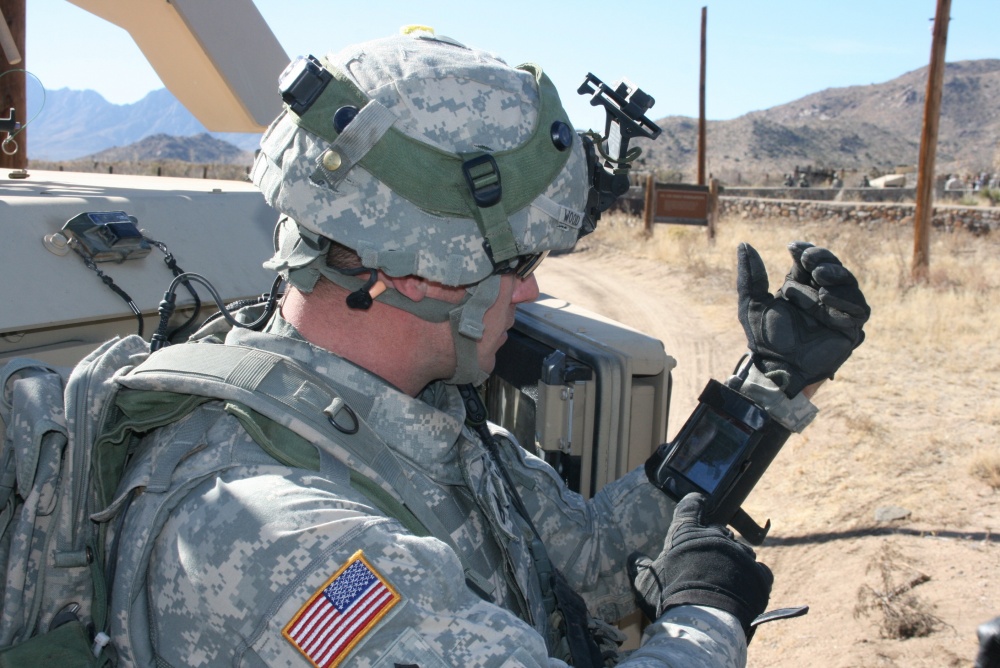24 April 2020
FOXTROT project and Geneva researcher recognized for achievements in improving ophthalmic trauma care
Researchers at Telemedicine and Advanced Technology Research Center’s (TATRC) Mobile Health Innovation Center (mHIC), supported by Geneva, are advancing traditional communication mechanisms to improve care coordination between patients and providers in ophthalmic trauma care.
The Forward Operating Base Expert Telemedicine Resource Utilizing Mobile Application for Trauma (FOXTROT) study is led by Principal Investigator (PI) MAJ William Gensheimer, MD and Co-Investigator Jeanette Little, and is one of two major projects that mHIC is working on to further develop mobile health care.
FOXTROT, an ocular trauma mobile telemedicine application, is designed to improve and extend ophthalmic trauma care in remote deployed environments utilizing advanced capabilities such as triage surveys, image capture, secure messaging, video chat, and remote health monitoring. The project is focused on providing comprehensive teleophthalmology services to warfighters and serves as the first Air Force Ocular Trauma project that TATRC’s mHIC has collaborated on. Not only did this project prevent the need for aeromedical evacuations in certain patients, it also demonstrated that teleophthalmology mobile phone applications can improve and extend ophthalmic care in operational environments.
To date, FOXTROT has been recognized for two awards: “Enabling Army Readiness and Modernization” from the Army Modeling the Simulation Office and the 2020 “FedHealthIT Innovation Award”.
FOXTROT’s Mobile Software Developer and Geneva employee Dean Parrish was also selected as the Fort Gordon Digital Health Innovation Center Employee of the Quarter.
TATRC Program Manager and Geneva employee Amanda Schmeltz said, “Thanks to Dean’s commitment to excellence, the deployment of FOXTROT was immensely successful, as this capability enabled role one to three medic-users to place teleophthalmology consults in the FOXTROT mobile app for trauma or disease non-battle injury (DNBI).” Schmeltz added,” An expeditionary ophthalmologist stationed in Bagram, Afghanistan was alerted via email and responded using a secure computer portal directly linked to the mobile app end users. TATRC’s PI partner, MAJ William G. Gensheimer, MD, reported very high user satisfaction and exceptional response time following analysis of this beta testing.”
The FOXTROT application and portal has received accolades from a variety of users and remains a capability with growing enhancements being evaluated to serve our medic warriors.


